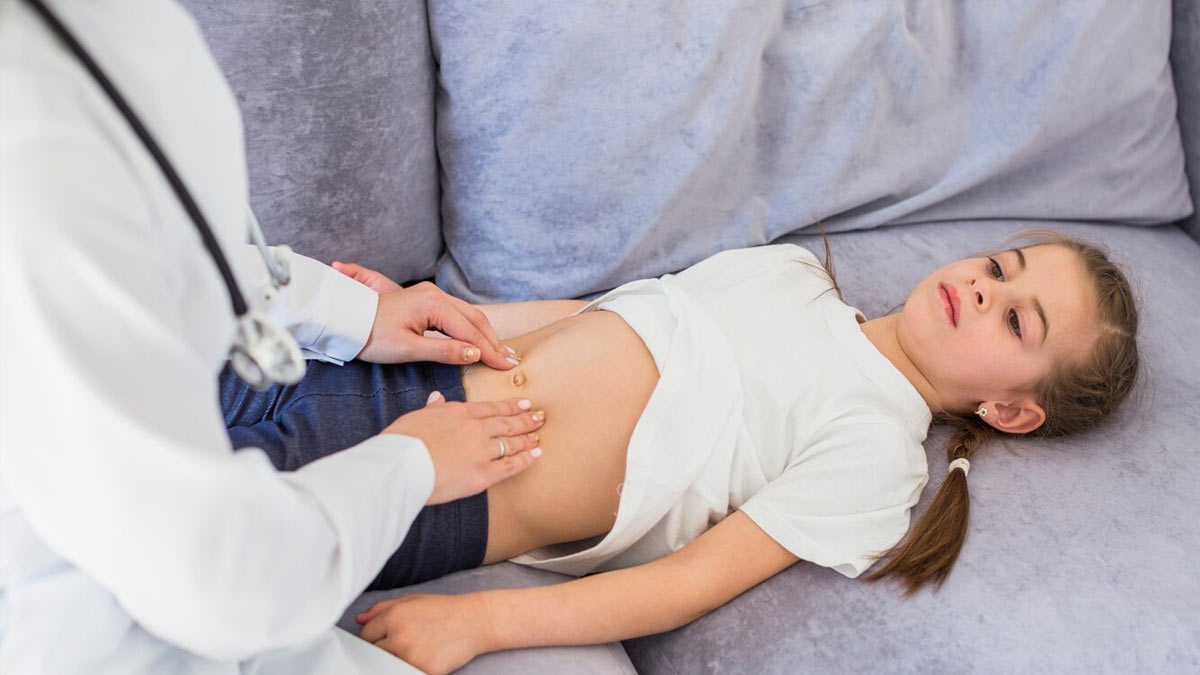
According to the World Health Organization, in the year 2015, more than one crore cases of appendicitis were reported, out of which 50,100 of these succumbed to the disease. Appendicitis is a condition where your appendix (a small pouch connected to your large intestine) is swollen due to being blocked by feces moving through the large intestine. The inflammation can result in sharp, immense pain and may even end up bursting or rupturing putting one at the risk of losing their life.
Table of Content:-
Is Appendicitis Possible In Children?
Although, based on research, most appendicitis cases happen between the age of 10 and 30, however, children could also suffer from appendicitis at a very young age. According to research each year in the United States, appendicitis affects 70,000 children. It occurs most often in children aged 10 to 18 years, and plays one of the most prevalent reasons for the emergency abdominal surgery in childhood. "Appendicitis can happen at any age, even in very young children," said Dr Shandip Kumar Sinha, the director of pediatric surgery and pediatric urology at Mednata-The Medicity in Gurugram.
Also Read: IBS To Lupus: 5 Diseases That Are Often Difficult To Diagnose
-1753512302841.jpg)
How Do I Know If My Child Has Appendicitis?
Lower right abdominal pain is one of the primary symptoms of appendicitis in children. This pain often starts around the belly button and changes to the lower right side later. Children may have trouble walking and it may be painful to jump or cough.
According to research, other symptoms of appendicitis in children may include:
- Nausea
- Lack of appetite
- Fever and chills
- Irritability
- Constipation
- Diarrhea
- Swollen belly (especially in younger children)
The Risks And Complications
"There are no known preventable risk factors. However, two risk factors that could make a child more likely to have appendicitis. One is having a family history of having appendicites and the second is having cystic fibrosis (a genetic disease that affects functioning of various essential organs)," Dr. Shoibalini Karmokar, General Physician and Founder of Ascesco says.
If appendicitis is not treated, your child’s appendix can burst (rupture). If the appendix bursts, it could spread bacteria throughout your child's abdomen. "This bacteria can cause a very serious infection known as peritonitis. A ruptured appendix could lead to bacterial infection of the blood stream, a potentially fatal situation called sepsis," Dr. Karmokar adds.
Diagnosis And Treatment
The healthcare provider will conduct a physical examination and will inquire about your child's symptoms and medical history. They will also likely need to run some tests to better understand your child's condition. Those tests may include: X-Rays, Ultra Sound, CT Scans, Urine or blood test.
Also Read: Diet For A Healthy Appendix: Foods To Eat And Avoid During Appendicitis

In mild cases, we may treat appendicitis in children with antibiotics alone. However, if need be, they will need to surgically remove the child's appendix (appendectomy). Which is an absolutely safe procedure.
Conclusion
Although appendicitis in children is not as common as adults, especially those who are younger than the age of 10, however, parents are always advised to be vigilant and consult a doctor at the sight of symptoms. “The tricky part for parents is identifying appendicitis in children before they have learnt to speak,” says Dr Karmokar. There are signs like persistent mild fever, touching the abdomen, and crying especially when they move, these signs along with the common symptoms like nausea, constipation, diarrhea, not eating, can collectively signal a problem.
Also watch this video
How we keep this article up to date:
We work with experts and keep a close eye on the latest in health and wellness. Whenever there is a new research or helpful information, we update our articles with accurate and useful advice.
Current Version